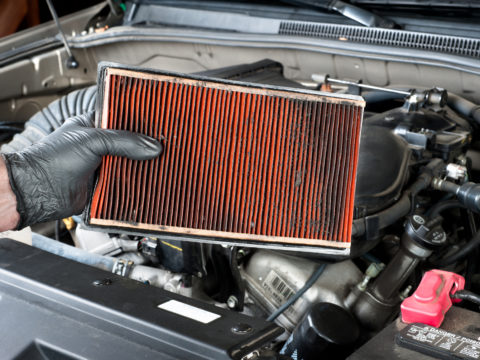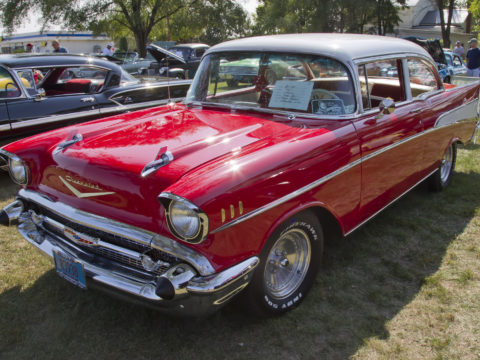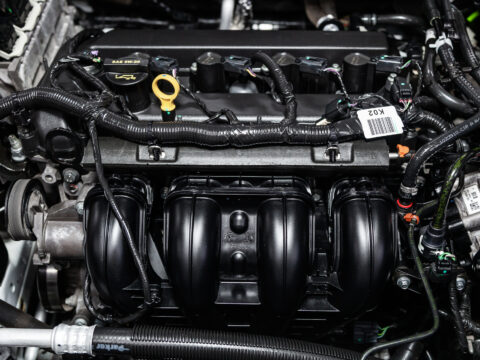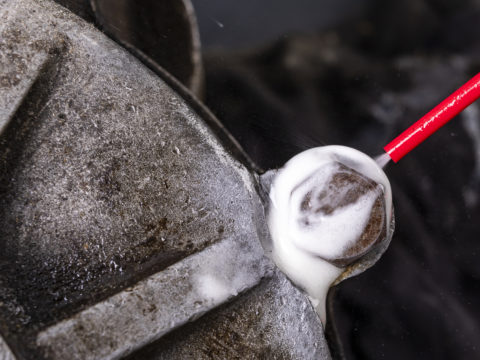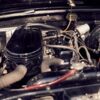If you’ve ever put low-octane fuel in your high-octane vehicle, you might’ve heard some weird sounds. That “engine knocking” is what happens when the fuel in your tank ignites at the wrong time.
Putting the wrong fuel in your car is one major cause of engine knocking, but other causes include faulty spark plugs, worn bearings, or a bad knock sensor.
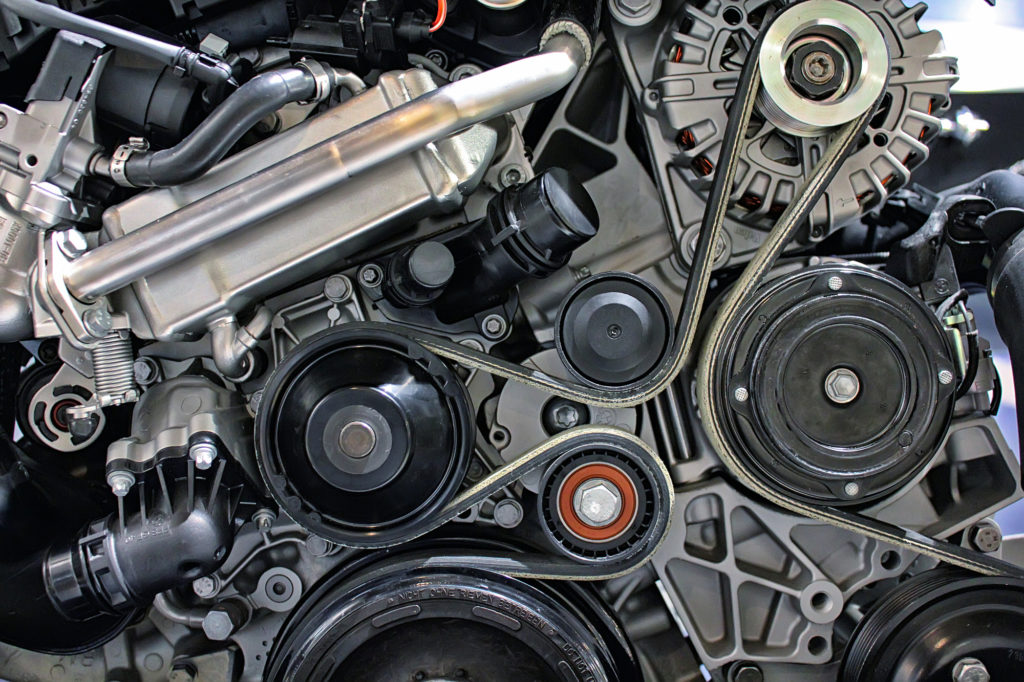
Contents
What Is Knocking Noise When Accelerating?
A knocking noise when you’re accelerating is a tapping or pinging sound that gets louder and faster as you speed up. It may or may not be present at idle, but it will likely be most noticeable when you’re putting your engine under a heavy load.
What Does Engine Knocking Sound Like?
An engine knock has a telltale pinging or tapping sound. Some have compared it to the sound of metal balls clinking together, while others have likened it to a soft, quick knock on a door or a pencil tapping on a desk.
That said, specific engine problems will cause knocking to come and go or increase at certain times. The sound combined with when you hear it will be a good indicator of what the problem might be.
For example, a rod knock, which indicates a problem with your rod bearings, will increase as you accelerate or if your engine is under heavy load.
When your car is idle, a knocking noise that eventually goes away could indicate an issue with your exhaust gaskets.
Another cause of knocking at idle is improper fuel in your tank. You’ll also hear this type of knocking while accelerating, too.
What Causes Engine Knock When Accelerating?
There are several different causes of engine knocking. Most are called detonation knocks and happen when your gas detonates at the wrong time or incorrectly. There are a few other causes that you should be aware of, though.
Low Octane Fuel
The first and most common cause of engine knocking is a detonation knock caused by low-octane fuel. High-octane fuel, also known as premium or high-test, remains more stable at higher temperatures than low-octane fuel. Therefore, if an engine is designed to hold premium fuel, that means it’s designed to combust fuel at a higher temperature.
If a vehicle is rated for premium and you fill it up with regular, you’ll likely hear some knocks and pings when the gas ignites at the wrong time during the combustion process. Regular fuel can’t always withstand high engine temperatures the same way premium fuel can, so it can ignite and cause knocking.
Rod Knock
Worn bearings in your engine are another common cause of engine knocking. Your engine’s bearings are what keep the pistons moving correctly, opening and closing the intake valve smoothly.
Once those bearings start to wear out, they’ll cause your rods to tap against your crankshaft. That tapping is called rod knock, indicating that the bearings may need to be replaced. Unfortunately, they’re not exactly easy to get to, so you could be looking at a hefty repair bill.
Bad Knock Sensor
Your vehicle is full of sensors that are constantly checking to make sure each component is working as it should. When a sensor goes bad, your check engine might flip on. In the case of a bad knock sensor, a telltale symptom is a knocking sound coming from your engine.
The knock sensor is responsible for monitoring the noises your engine makes. It essentially regulates how and when the fuel in your engine combusts. If the knock sensor malfunctions, it could cause your fuel to detonate at the wrong time.
Spark Plugs
Spark plugs are what cause the fuel in your engine to ignite. Similar to using low octane fuel, if your spark plugs are faulty, there could be issues with gas combustion that could lead to knocking. Faulty spark plugs could also cause a dip in engine performance, so it’s important to get them replaced promptly.
The main reason a spark plug could cause knocking is because it’s degraded and simply needs to be replaced. Most manufacturers recommend replacing your spark plugs every 30,000 miles, but how long your spark plugs last will depend on their quality.
Improper Fuel/Air Mixture
When you start your car, a mixture of gas and air enters your engine. For your engine to work perfectly, that air and fuel mixture must be precise. When the fuel-to-air ratio is off, the mixture becomes “lean.” In other words, too much air and not enough fuel make your engine unhappy.
The main components you’d want to check out are your oxygen and mass air flow sensors, your fuel pump, and your fuel injectors. If any of those fail, your engine won’t work as intended.
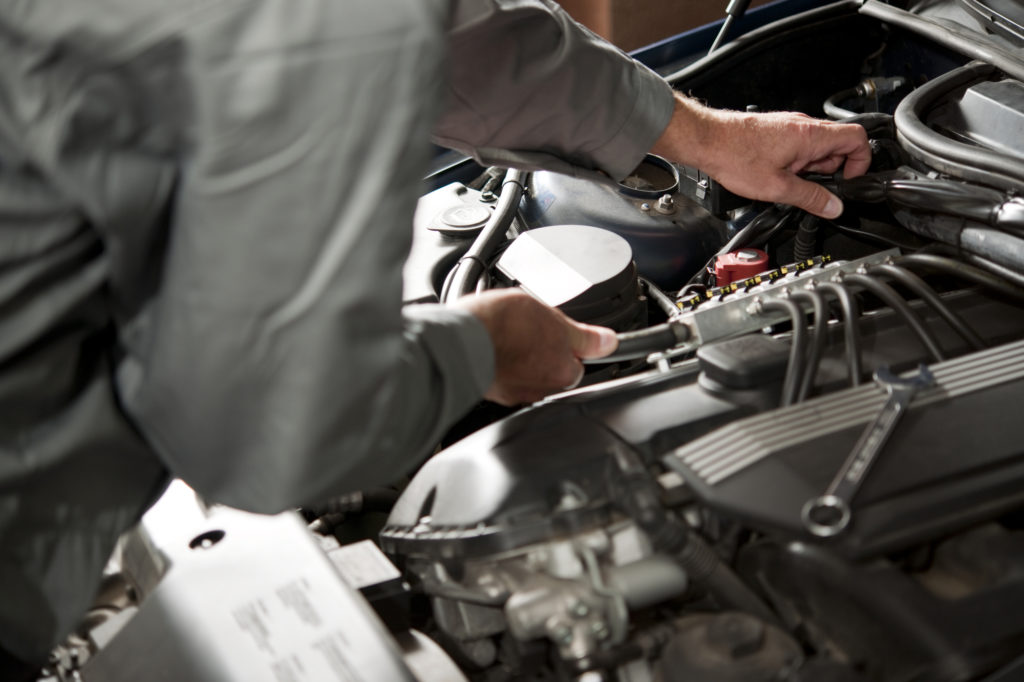
How to Fix Engine Knocking When Accelerating?
First, check your fuel. This is the “least invasive” method of diagnosing engine knocking. Pop open your owner’s manual and double-check what octane you should put in your car. If it calls for 91 or above and you’ve been loading up with 87, fuel octane is likely your problem.
Another option is to change your oil and filter. If you know how to do an oil change yourself, it won’t take more than a half-hour out of your day. Or, you can take it to a mechanic and have it done in an hour or two. Either way, it’s another inexpensive option that could solve your problem.
Once you’ve confirmed everything is good with your fuel and oil, you can move on to yourspark plugs. If you’re handy with cars, you can probably swap your spark plugs out yourself. If they’re past their 30,000-mile mark, replacing them could do the trick. Likewise, if you just got your spark plugs replaced and you’re hearing knocking, you might have a faulty plug.
Most of the other causes of engine knocking, including worn bearings and rod knock sensors, are best left up to a trained mechanic because they require the removal of certain engine components.
Is It Safe to Drive With a Knocking Engine?
In some cases, it’s safe to drive with your engine knocking, although you should still address the issue as soon as possible.
If the issue is the wrong fuel, you won’t have any trouble getting to the gas station to fuel up properly or running the tank to empty. Likewise, getting your spark plugs changed is a relatively quick process. You won’t harm your vehicle if you drive it to the mechanic.
However, continuing to drive when your bearings are bad could lead to major engine problems if you don’t address them. The bearings are deep inside your engine and, if left unchecked, could lead to issues with your pistons and other components. Engine rebuilds aren’t cheap, and if you wait for the problem to correct itself, it’ll ultimately do more damage.
What to Do if the Engine Knocking Sound at Acceleration Persists
Sometimes, even after excessive troubleshooting, you might not be able to get rid of that knocking sound. If that’s the case, you should take it to a mechanic to get it looked over more thoroughly.
Engine knocking isn’t always the death-rattle of an engine. In fact, in most cases, it won’t take much time or effort to fix, especially if you get it diagnosed early. Most importantly, you should listen to what your car is telling you. Knocking in your engine isn’t part of your vehicle’s normal running condition. So when you hear that rattling ping, be sure to address it right away.

